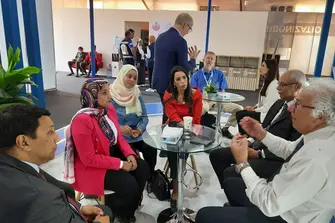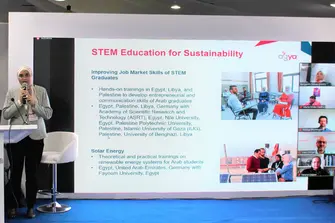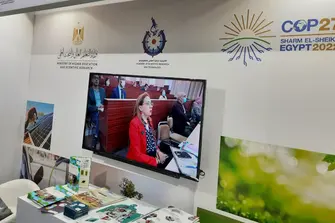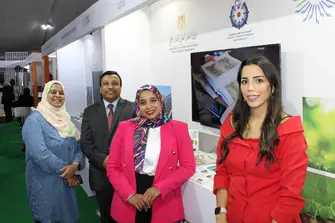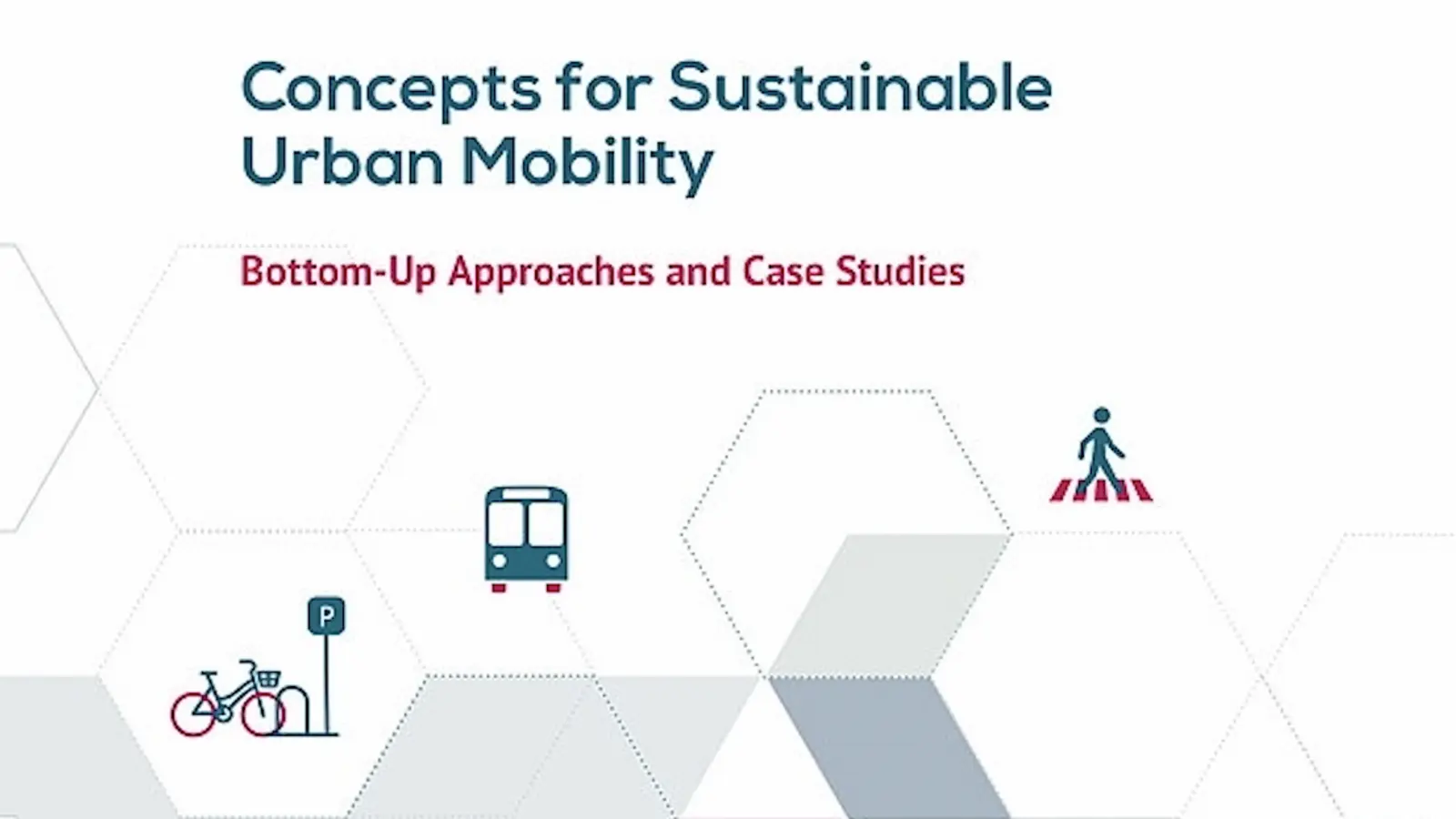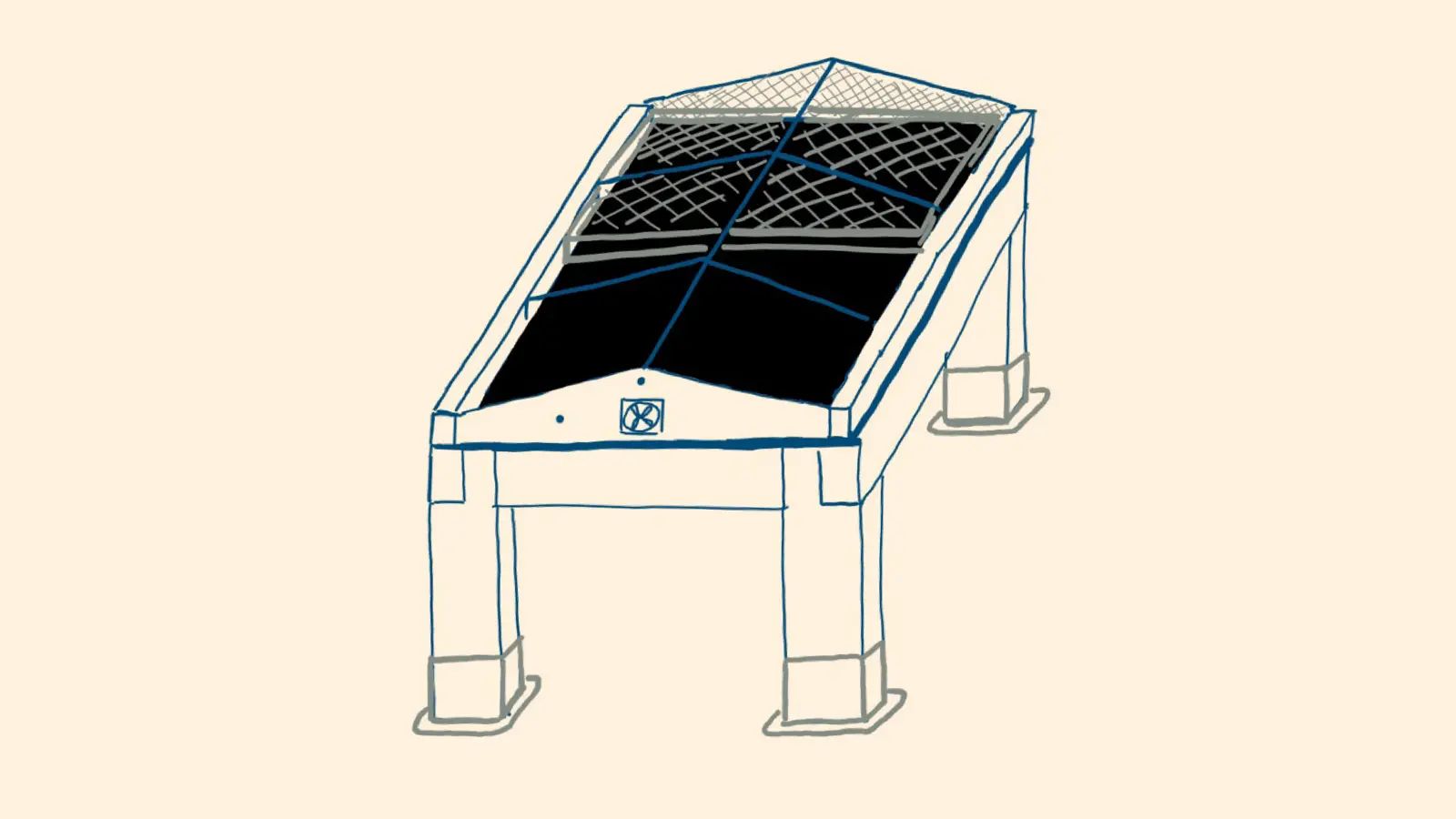AGYA at COP27 in Egypt – the First Climate Conference in the Arab Region
Arab-German Research Cooperation for Sustainable Solutions
For the 27th time, the ‘Conference of Parties’ (COP) was organized by the United Nation. For the first time, however, the conference took place in the Arab region. This year’s ‘Conference of Parties’ (COP) focused on implementation measures to mitigate climate change and opened a new chapter on financing loss and damage in vulnerable countries.
The COP 27 took place in Egypt`s Sharm El Sheikh with the country in the role of presidency. As such, the region’s significance and special role in reducing emission is of utmost priority. As such, it acknowledges the fact that the Arab region is among the most affected regions by climate change. Political decision makers, scientists, and civil society stakeholders advocate for exchanging on practical solutions and immediate responses. Therefore, issues of managing water and food resources, as well as, implementing renewable energy and sustainable mobility were crucial sites of discussion at COP 27.
AGYA members and alumnae/i presented their inspiring projects and innovative suggestions for immediate action to mitigate the effects of climate change in the field of green energy, nanotechnology, and sustainable food security at the AGYA booth in the Green Innovation Pavilion: Let Science Talk.
Arab-German Research Cooperation for Sustainable Solutions: Innovations in Agriculture and Resource Management
Innovations in agriculture, such as vertical farming systems, are key to ensure sustainable food security under the conditions of climate change and limited resources.
Dr. Henda Mahmoudi, AGYA alumna, Plant Biologist, International Center for Biosaline Agriculture (ICBA), United Arab Emirates
AGYA member Dr. Nada El Darra exchanged with AGYA alumna Dr. Henda Mahmoudi on the concept of vertical farming, which makes it possible to produce food directly in urban areas in large quantities and year round. Together with fellow AGYA members, Henda Mahmoudi developed and tested a setup for indoor and outdoor farming systems in vertical greenhouses. Usually, they are equipped with recirculation systems and hydroponics to ensure resource saving.
Working at the interface of academia, industry and society, I strongly believe that secure and sustainable water supply can only be achieved in a joint effort.
Prof. Dr. Ahmed Khalil, AGYA alumnus, Material Sciences, Fayoum University, Egypt
Focusing on the aspects of technological innovation in resource management, AGYA alumnus Prof. Dr. Ahmed Khalil introduced the potential of nanomaterials in treating wastewater to overcome increasing water scarcity in the Arab region. In exchange with Prof. Dr. Sara Abdel Gaber, he emphasized the importance of integrating the concept of sustainability systematically into the education system.
Green Hydrogen, Energy Transition & the Future of STEM Education in the Arab Region and Europe
In a hybrid panel discussion, members of the AGYA Working Group Energy, Water & Environment with their interdisciplinary expertise in energy topics addressed the potential of a green hydrogen economy in the Arab region and Germany. Dr. Philipp Blechinger opened the discussion with perspectives of future demand scenarios of green hydrogen in Germany.
For an equitable and successful green hydrogen (GH2) economy, it is important to know the perspectives of the exporting countries.
Dr. Philipp Blechinger, Energy Engineering, Reiner Lemoine Institute, Germany
Together with his fellow AGYA colleagues, he researching these perspectives in the AGYA project 'Export Perspectives on a Green Hydrogen Economy'. One of them is Prof. Dr. Marc Ringel, who represents an economic perspective within the discussion round. He underlined the need for public-private-partnerships to make green hydrogen a competitive energy carrier. A different, but not less relevant perspective brought in by Prof. Dr. Lobna Said highlighted the effects of sustainable energy transition on STEM education in Arab countries and Germany. She argued that both, higher education and school education, need to adapt to new concepts in order to enable future generations to work with and further develop sustainable technologies. The panel discussion was introduced by Prof. Dr. Verena Lepper, AGYA Principal Investigator (PI) & Egyptian Museum and Papyri Collection of the Staatliche Museen zu Berlin, and moderated by Prof. Dr. Sara Abdelgaber.
Get inspired, take action, and make use of AGYA's recommendations
Cooperation Partner
Date and Venue
6 - 18 November 2022
Sharm el-Sheikh, Egypt
